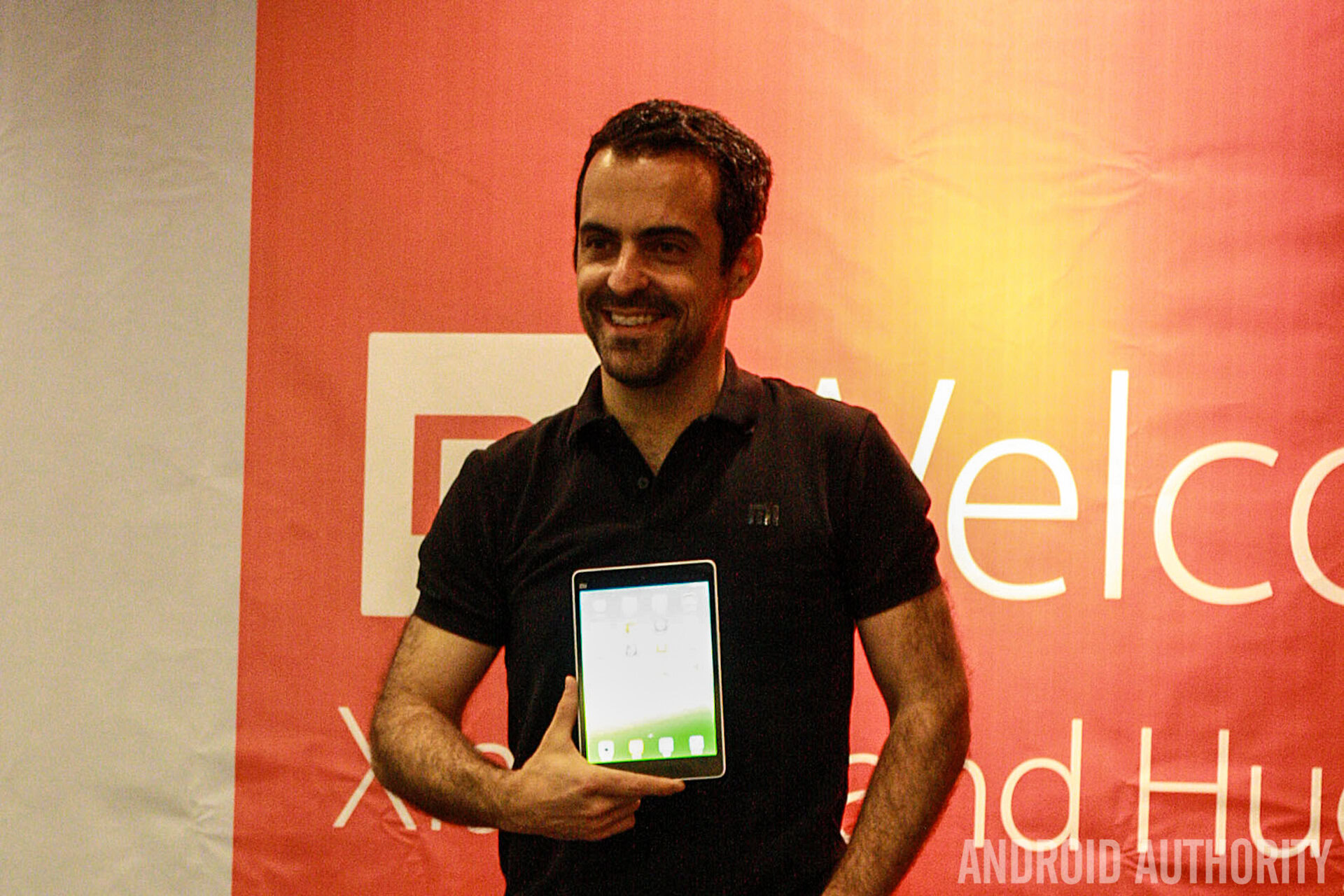Affiliate links on Android Authority may earn us a commission. Learn more.
Xiaomi’s Hugo Barra talks business models and smartphone success
Published onNovember 3, 2014

Xiaomi may not be a household name in the West, yet, but the company has made a remarkable impact on the global smartphone market, despite only being founded back in 2010. Hugo Barra left Google a year ago to join the company and has overseen one of the fastest growth rates of any tech company this decade.
In a recent interview, Hugo Barra talked a little about Xiaomi’s consumer “family”, security concerns, and how the company’s low-cost smartphone business model actually turns a profit.
Xiaomi has so far sold 60 million smartphones this year, up from 18 million handsets in the year before, and has apparently turned over around $10 billion in revenue. But the cutthroat pricing of its flagship Mi series has left many to question exactly how much profit the company makes from its huge consumer base.
Barra says that a dedicated e-commerce platform and a simplified core product line-up has helped the company profit through less traditional methods. Xiaomi only has two flagships on sale and a product life-cycle spanning 24 months. A large stock sold over the course of a couple of years helps Xiaomi save on costs through the economy of scale.

In addition, the company has over 1,000 complementary products listed on its website, ranging from headphones and power banks, to replacement parts and Xiaomi branded gadgets. By selling products through its own e-commerce store, Xiaomi is able to keep the prices down and the margins up compared with many of its competitors.
About 10% of people who buy our smartphones are on what we call our beta track. They’ve chosen to receive software updates every Friday, with new features, some of which are still sort of only half baked, half implemented, because they want to provide feedback.
This all ties into Xiaomi’s approach to dealing with consumers. Barra believes that listening closely to customer feedback, having them test out upcoming features themselves, and building an extensive online community has helped nurture a strong and loyal consumer base. One which will likely end up spending money on the extended Xiaomi brand.
Our core belief is basically that if you treat your users or customers as friends, if you listen to them carefully for their feedback, if you respect their views, if you really take care of them, they become attached to you and to your products.
However, the past four years haven’t all been smooth sailing for Xiaomi. Early devices were plagued with accusations of copycat Apple designs. More recently, security concerns relating to user data have damaged the company’s reputation in the West. Barra defended Xiaomi by suggesting that products in similar categories are based on a similar design language and that Apple hardly has a clean record when it comes to pinching existing ideas. As for security, the move over to new data centers will help Xiaomi comply with local regulations, but he also believes that Chinese companies are, to a certain extent, held to a tougher privacy standards that a lot of other companies.
Looking to the future, Xiaomi has started its expansion outside of China and is looking to make headway in Brazil and Mexico next, before coming back to other countries in South-East Asia towards the end of 2015. There are no plans to bring Xiaomi’s handsets to the US, at least not yet, as Barra has other markets more suited to its business model to get around to first.
Xiaomi’s momentum shows no signs of slowing down. Given that it is already the third largest smartphone manufacturer in the world, Xiaomi is a name that we are going to hear a lot more about over the coming years.